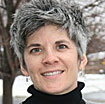Commentary on Psalm 62:5-12
This Psalm is for the asylum seeker, those who seek refuge from adversaries, those who yearn for security and stability.1
Dare I say that this Psalm is for us all especially now?
The Psalmist’s experience of crisis prompts the big question of whether or not he (anyone?) can trust and take refuge in God in the face of enemies? The Psalmist’s undeniable answer is, “Yes!” Especially at such a time, the only thing that offers true refuge is God, the steadfast one.
There are multiple genres at work in this Psalm, which suggests the Psalmist does all it takes to declare his trust in God and instruct others to do the same. In Psalm 62 one finds lament, praise, thanksgiving, wisdom, exhortation. Most interesting is variation in parts of speech utilized by the Psalmist as he moves from testimony to exhortation to prayer. The second half of the Psalm (the lectionary selection) progresses like this:
Speaking about God (3rd person testimony)
Direct address to the people (2nd person exhortation)
Speaking about people in light of who God is (3rd person instruction)
Direct address to the people (2nd person exhortation)
Speaking about God (3rd person testimony)
Direct address to God (2nd person prayer)
Working our way through the form itself offers a possible effective form for a sermon.
There are a few intriguing elements in the Psalmist’s testimony in verses 5-7.
- The English translation covers up the emphatic and repetitive ‘ak that begins each of these verses. ‘Ak is translated as alone or only (“but a” in verse 9). “Only for God do I wait in silence. Only God is my rock and my salvation.” This important word occurs six times in the whole Psalm.
- Verses 5 and 6 are an exact repetition of verses 1 and 2 with only one exception; “Salvation” in verse 1 becomes “hope” in verse 5.
- The sequence of possessive nouns is powerful: my rock, my salvation, my fortress, my mighty rock, my refuge. The determined Psalmist claims God as his own and seems to create a verbal fortress with this series.
After this opening expression of trust, the Psalmist turns to others with unapologetic exhortation (verse 8). Clearly, the my does not give the Psalmist exclusive rights to this refuge. God can be your only as well. Trust in him! Lament (“pour out your heart”) before him. One of the most powerful turns is in verse 8b when the individual self-possession of God is transformed into a communal “God is a refuge for us!” The Psalmist’s experience of crisis turns into faithfulness in the only refuge, God, which then turns into exhortatory proclamation that others might trust only in this one, God.
Knowing that crises might lead some to depend on unfaithful means of hope and salvation (is he is speaking here from personal experience?), the Psalmist names those things that challenge the ‘ak; e.g., status in the world (interestingly, both high or low estates get in the way), extortion, robbery, riches.
Note elements of the wisdom tradition in vss. 9 and 11. Hebel (translated as “breath”) appears twice in verse 9 and reminds us of Qoheleth’s wisdom (Ecclesiastes 1:2, etc. where hebel is translated as “vanity”). The numeric parallelism in verse 11, “Once God has spoken, twice have I heard this,” is akin to wisdom literature found in Proverbs (e.g., Proverbs 30:15-19).
So far, the Psalmist has gone from a personal expression of trust in God, to exhortation and instruction for the people to trust in God, before finally turning directly to God in prayer. It is the prayer’s affirmation of God’s hesed that solidly undergirds all that has come before; one could not exclaim God as one’s own without God’s hesed; one could not confirm God as rock or fortress or refuge without God’s hesed; one could not proclaim that God is the only refuge without God’s hesed; one could not exhort others to give up their delusional and vain dependencies without God’s hesed; one could not advocate reliance on God alone as refuge and hope and salvation without God’s hesed. It is the final prayer of praise and thanksgiving for hesed that gives this Psalmist both confidence and a restful soul.
Homiletical possibilities
Center of gravity
Draw out one or all of these psalm’s center of gravity possibilities. The first is the repeated verses 5-6 that serve as a refrain. The second is the outward turn from the Psalmist’s own claim that God is his refuge and hope, to the affirmation that God is our refuge and hope as well. The third is the emphasis on God’s steadfast love, hesed, that supports everything in the psalm. Which of these, or which combination of these, might drive your sermon?
Mirror the form
Would you consider opening the sermon with your own expression of trust in God that has arisen out of an experience of crises? Then, what instruction or wisdom, based on your experience, might you offer the congregation? Name those delusional and vain dependencies that we all rely on. While most do not resort to explicit extortion or robbery, we might certainly be apt to set our hearts on riches and/or status. For our own good, exhort us not to put our trust or find refuge in these things, but in God alone. And then lead us in prayer of praise and thanksgiving to the steadfast one.
Scripture interprets Scripture
While Jesus’ words in Mark are not to be read into this Psalm, Jesus himself is like the Psalmist when he proclaims, “The time is fulfilled, and the kingdom of God has come near; repent, and believe in the good news” (Mark 1:15). Calling others to repent is emboldened by God’s steadfastness. It is that steadfast love that is both good news and sign of the kingdom coming near. How powerful it is that Mark’s account of the gospel begins at this point of trust in God’s steadfastness.
Whatever the preacher does with a sermon based on this Psalm, the bottom line is that it is in God alone that we place our trust and take refuge in times of crisis.
Notes
- Commentary first published on this site on Jan. 25, 2015.


January 24, 2021